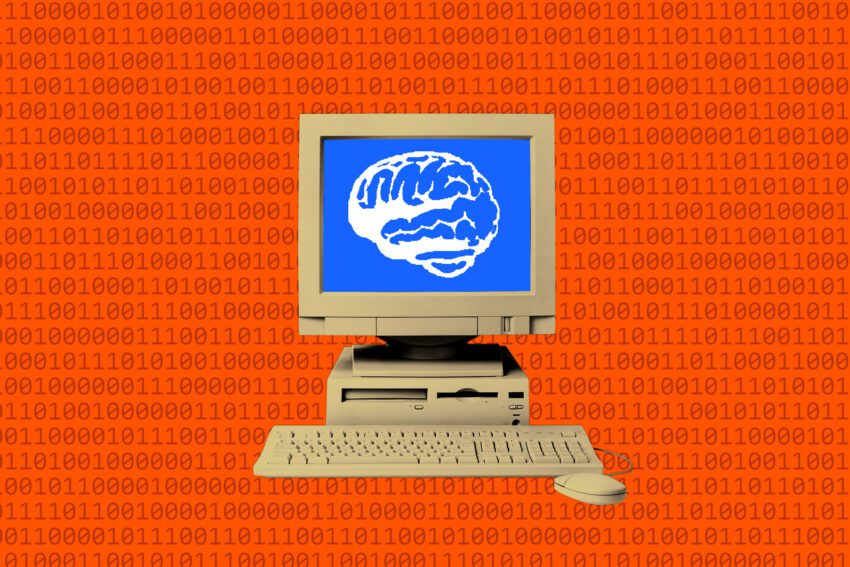
americans want ai to stay out of Recent findings from a Pew Research study reveal a growing skepticism among Americans regarding the role of artificial intelligence (AI) in their personal lives.
americans want ai to stay out of
Overview of the Study
The Pew Research Center’s latest survey indicates that a significant portion of the American population harbors concerns about the integration of AI into daily activities. Notably, 50 percent of respondents expressed more apprehension than enthusiasm regarding AI’s influence, a slight decrease from 52 percent in 2023 but a marked increase from just 37 percent in 2021. This upward trend in concern reflects a broader societal unease about the implications of AI technology.
Key Concerns About AI
Respondents articulated several specific worries about AI’s impact on their lives. Among the most pressing issues is the belief that AI could hinder human creativity and the ability to forge meaningful interpersonal relationships. This sentiment is particularly pronounced in the realm of dating and matchmaking, where only 18 percent of participants felt that AI should have any role at all. Even more striking, a mere 3 percent were comfortable with AI playing a “big role” in these personal matters.
AI in Personal Relationships
The data suggests that while Americans are open to AI’s capabilities in analyzing large datasets—such as predicting weather patterns or aiding in medical research—they draw a clear line when it comes to personal relationships. A substantial two-thirds of respondents expressed a desire for AI to remain entirely uninvolved in their love lives. Furthermore, 73 percent of those surveyed believe that AI should not provide guidance on religious beliefs, indicating a strong preference for human-centric decision-making in deeply personal areas.
Misinformation and Trust Issues
Another significant concern highlighted in the study is the potential for AI to contribute to the spread of misinformation. Eighteen percent of respondents identified misinformation as their primary concern, ranking it just behind the negative impact of AI on human abilities and connections. The prevalence of misinformation in today’s digital landscape has raised alarms, and many Americans feel it is crucial to distinguish between human-generated and AI-generated content. However, a troubling 53 percent of participants reported feeling unconfident in their ability to identify AI-generated work, underscoring a gap in public understanding and awareness.
Generational Perspectives on AI
Interestingly, the study reveals a generational divide in attitudes toward AI. Contrary to the expectation that younger individuals might be more accepting of new technologies, the survey found that younger Americans are actually more concerned about AI’s potential negative effects. Specifically, 57 percent of respondents under the age of 30 expressed extreme concern that AI could erode human abilities, compared to only 46 percent of those aged 65 and older. This generational disparity raises questions about the differing experiences and values that shape perceptions of technology.
Implications for Future AI Development
The findings from the Pew Research study have significant implications for the future development and deployment of AI technologies. As public sentiment leans toward skepticism, it becomes increasingly important for developers and policymakers to address these concerns proactively. The desire for more control over AI usage is evident, with 61 percent of respondents indicating a wish for greater agency in how AI is integrated into their daily lives. However, a disheartening 57 percent feel they currently have little to no control over this integration.
Public Sentiment and Regulatory Considerations
The skepticism surrounding AI also raises questions about the need for regulatory frameworks to govern its use. As AI technologies become more pervasive, the potential for misuse or unintended consequences grows. Public sentiment suggests a demand for transparency and accountability in AI applications, particularly in sensitive areas such as healthcare, education, and personal relationships. Policymakers may need to consider establishing guidelines that prioritize ethical considerations and protect individuals from potential harm.
The Role of Education and Awareness
Education and awareness will play a crucial role in shaping public perceptions of AI. As the study indicates, many Americans lack confidence in their ability to identify AI-generated content. This gap in knowledge may contribute to the spread of misinformation and exacerbate fears about AI’s influence. Initiatives aimed at improving digital literacy and understanding of AI technologies could help mitigate these concerns and empower individuals to navigate the evolving landscape more effectively.
Stakeholder Reactions
The reactions from various stakeholders to the findings of the Pew Research study are varied. Technology companies, for instance, may need to reassess their approaches to AI development and marketing. Acknowledging public concerns and prioritizing user-centric design could help build trust and alleviate fears associated with AI. Additionally, companies might consider engaging with communities to better understand their needs and preferences, fostering a collaborative approach to AI integration.
Consumer Advocacy Groups
Consumer advocacy groups are likely to seize upon these findings to push for stronger protections against potential abuses of AI technology. As public awareness of AI’s implications grows, these organizations may advocate for policies that ensure ethical standards are upheld in AI development and deployment. They may also call for greater transparency from companies regarding how AI systems operate and the data they utilize.
Conclusion
The Pew Research study paints a complex picture of American attitudes toward AI, revealing a landscape marked by skepticism and concern. As individuals grapple with the implications of AI in their lives, the desire for control and understanding becomes paramount. The findings underscore the need for ongoing dialogue among stakeholders—including technology developers, policymakers, and the public—to navigate the challenges and opportunities presented by AI. By addressing concerns head-on and fostering an environment of transparency and education, it may be possible to build a future where AI serves as a beneficial tool rather than a source of anxiety.
Source: Original report
Was this helpful?
Last Modified: September 17, 2025 at 11:37 pm
0 views















